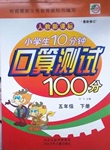题目内容
阅读短文,然后从方框中选出可以填入文中空白处的单词。
Sound of genius(天才)
Sophia Chan (Chen Qingli) is a pretty girl with a sweet smile. She is【小题1】_____ 12, but many people are【小题2】 calling her a “young violin genius”.
Chan began to play the violin __【小题3】the age of 4. She gave her【小题4】 show when she was 5. In 2006, CCTV-【小题5】 her a “ young star of the future”. In 2007, Sophia【小题6】 the Gold Award (金奖) at the Youth Art festival in Germany. Also, her first violin album(专辑)【小题7】 out in May this year.
【小题8】 kids need their parents to push them to work hard. Chan, however, actively plays the violin on her own. “ Playing the violin is what I really like,” she says. “ It is my interest that pushes me to play【小题7】.”
Chan balances her violin playing with her school work. She plays her violin after school. It is usually late at night when she begins to do her homework. “I am used to it,” Chan says. “ The more you play, the more you get.”
【小题1】only
【小题2】already
【小题3】at
【小题4】first
【小题5】called
【小题6】got
【小题7】came
【小题8】Most
【小题9】well
解析试题分析:这篇短文主要介绍了中国年轻的小提琴家陈清丽的成长历程。
【小题1】结合语境可知此处指的是她只有十二岁。结合所给选项,可知填only,仅仅,只有。
【小题2】联系下文描述,可知人们已经叫她“年轻的小提琴天才”。结合语境及所给选项,可知填副词already已经。
【小题3】考查短语at the age of在……多少岁时。故填介词at,在一点。
【小题4】结合语境可知此处指的是她的第一次演出,结合所给选项可知填序数词first,第一。
【小题5】句意:在2006年,中央电视台叫她“年轻的未来之星”。结合所给选项,可知填过去式动词called,称呼,叫。
【小题6】联系下文,可知此处指的是她获得了金奖。结合所给选项,可知填过去式动词got,获得。
【小题7】考查短语come out出版,出现。结合语境及所给选项,可知填过去式动词came,来,出来。
【小题8】联系下文,可知此处指的是大部分孩子需要他们的父母促使他们努力学习。结合所给选项,可知填形容词Most,大部分的。
【小题9】结合语境可知句意为:是兴趣促使我演奏好。结合语境及所给选项,可知填副词well,好地,做状语。
考点:选词填空
点评:由于本题已给出所需单词的正确形式,故完成较易。只需要结合语境,根据主谓宾语的搭配习惯,选出能使句意完整的单词即可。

 小学生10分钟口算测试100分系列答案
小学生10分钟口算测试100分系列答案| area because help means its during better answer new |
At the dance, there will be snacks and photo booths (机器拍照亭), as well as strict(严格的) rules to 【小题5】 create a healthy and enjoyable evening for all students. And all the dancers will be given a security check(安检)before they come into the dance 【小题6】 . This is acceptable. But some rules may be a little bit over the top(过分). For example, a school once asked 【小题7】 students to keep a standing position while they were dancing. That 【小题8】 the students couldn’t do anything freely. You’d 【小题9】 not break the rules because you’ll be asked to leave there, or even worse, be placed on a do not invite list.
阅读短文,然后从方框中选出可以填入文中空白处的单词。
| area because help means its during better answer new |
What’s the most popular school activity among American students? The 【小题1】 is the school dance. Most American high schools have at least two dances 【小题2】 the year, one in winter and the other in spring. Students attend these events 【小题3】 it’s a great opportunity for them to meet 【小题4】 friends.
At the dance, there will be snacks and photo booths (机器拍照亭), as well as strict(严格的) rules to 【小题5】 create a healthy and enjoyable evening for all students. And all the dancers will be given a security check(安检)before they come into the dance 【小题6】 . This is acceptable. But some rules may be a little bit over the top(过分). For example, a school once asked 【小题7】 students to keep a standing position while they were dancing. That 【小题8】 the students couldn’t do anything freely. You’d 【小题9】 not break the rules because you’ll be asked to leave there, or even worse, be placed on a do not invite list.
1阅读短文,然后从方框中选出可以填入文中空白处的单词。
|
area because help means its during better answer new |
What’s the most popular school activity among American students? The 1. is the school dance. Most American high schools have at least two dances 2. the year, one in winter and the other in spring. Students attend these events 3. it’s a great opportunity for them to meet 4. friends.
At the dance, there will be snacks and photo booths (机器拍照亭), as well as strict(严格的) rules to 5. create a healthy and enjoyable evening for all students. And all the dancers will be given a security check(安检)before they come into the dance 6. . This is acceptable. But some rules may be a little bit over the top(过分). For example, a school once asked 7. students to keep a standing position while they were dancing. That 8. the students couldn’t do anything freely. You’d 9. not break the rules because you’ll be asked to leave there, or even worse, be placed on a do not invite list.